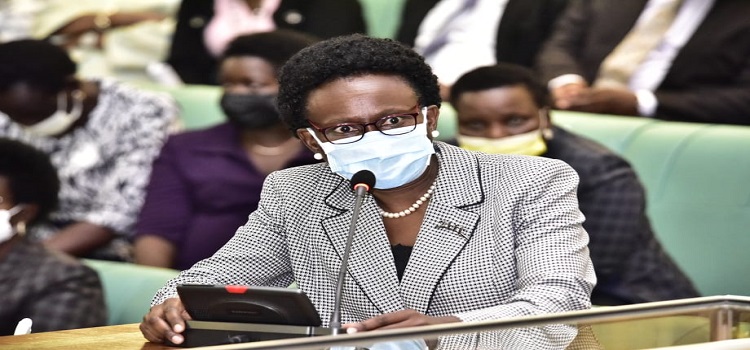The Minister for Health, Dr Jane Ruth Aceng, has revealed a government plan to roll out surgery for diabetic retinopathy to all regional hospitals.
Aceng said the eye blinding disease is currently treated at a few selected hospitals located mostly in the central region.
She made the announcement while presenting an action report on Parliament’s resolutions from May 2021 to May 2022 during plenary sitting chaired by Deputy Speaker, Thomas Tayebwa on Thursday, 24 November 2022.
“When Retinopathy has already occurred, treatment is by surgical intervention. This is a specialised treatment and is only offered by ophthalmologists at Mulago National Referral Hospital, Mengo Hospital and Ruharo Hospital in Mbarara District,” she said.
She, however, said her ministry has forged a way to have surgeries conducted in all regional hospitals, so as to reach the majority who are unable to move to the limited hospitals.
“The Ministry of Health Eye Care Plan 2020-2025 proposes to extend these services to all regional referral hospitals through, equipping, training and recruitment of specialists. Plans are underway to procure the much-needed equipment and train at least two people per year,” she said.
She said the ministry had intensified sensitisation on the need for early screening for diabetes and high blood pressure related retinopathy. Free screening services are offered at Mulago eye clinic and in all public health facilities from the level of health centre four and above, she added.
On Parliament’s resolution for government to offer free drugs to Ugandans with diabetes and high blood pressure, Aceng said government has allocated Shs3billion to Non-Communicable Diseases (NCDs) which include diabetes and high blood pressure.
As result, she said medicines for management of blood pressure and diabetes have been procured and distributed to all public facilities.
“Funding for NCDs started off catering for the supply of free insulin to all public hospitals. This was later incorporated into the wider NCD and Palliation budget line with the sub-components of hypertension, diabetes, sickle cell disease, mental health and oral morphine for palliation,” she said.
Cognisant of the increasing burden and mortality due to NCDs, Aceng called on Ugandans to be keen on early screening especially for diabetes and high blood pressure which she said were the most common.
She decried the level of unawareness about NCDs, citing a recent study that indicated that 75 per cent of adults with hypertension were unaware of their status.
Do you have a story in your community or an opinion to share with us: Email us at editorial@watchdoguganda.com









